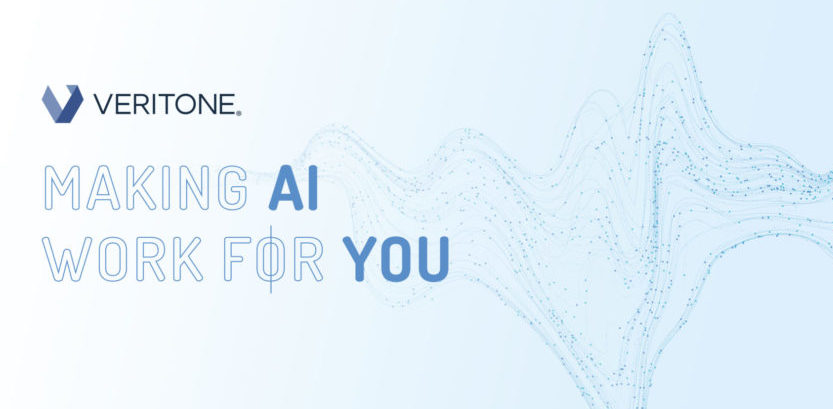Connections

Veritone CFO: Company’s Seeing Increased Traction for Illuminate, Redact Applications
Story Highlights
Veritone is seeing growing interest in its Illuminate and Redact applications, according to Veritone CFO Pete Collins.
The company just started selling Illuminate in the second half of 2019 and has been getting “very positive feedback” from partners since then, he said Jan. 14 at the Needham Growth Conference in New York.
Although it was initially targeted at the litigation support category, Veritone also found Illuminate was useful in a “broader” set of use cases than originally intended. Noting that the application takes large quantities of audio, video and structured data, and is able to detect anomalies in all that data, he pointed out that the company realized Illuminate could also be used in police investigations and by prosecuting attorneys.
Pointing to the growing number of Software-as-a-Service (SaaS) licensing applications that Veritone has been able to sign in recent quarters, he noted that, from early in the third quarter of 2019 that started in July through the end of October, it signed 19 new applications for Redact alone. That artificial intelligence (AI)-powered law enforcement application “rapidly obscures personally identifiable and sensitive information in video evidence,” the company noted when announcing it in 2018.
Collins also touted the company’s new VeriAds network, which it announced the full commercial launch of in November. The robust suite of revenue solutions enables radio and television broadcasters, podcasters and social media influencers to generate incremental advertising revenue from premium advertisers, according to the company. The network’s three turnkey programs – VeriAds Spot Network, MicroMentions and Influencer Bridge – give media partners access to a wide range of placement options, from preset committed inventory to on-demand run-of-schedule solutions, the company said.
VeriAds is backed by Veritone’s proprietary operating system for AI, aiWARE, which enables media partners to create customized solutions that fit their varying ad inventory needs, access rich insights and standardized metrics and reporting, and optimize revenue. Once activated, VeriAds revenue programs are programmatically managed and handle all advertising sales, collections, clearance verification and revenue distribution – requiring minimal operational support and administration from media partners, according to the company.
During his conference presentation, Collins also discussed the three main stages of AI implementation, what he referred to as the AI “loops”: “In the loop” in which human involvement is required for an AI process to occur; “on the loop,” in which machines are able to do the bulk of the work and human involvement becomes a check to ensure processes are running normally and to verify accuracy; and “out of the loop.” In the latter stage, human involvement isn’t required at all anymore, he said, noting that’s today, “for the most part, science fiction.”
Collins also noted that, in early November, the company reduced headcount from about 315 employees to about 290. Part of reason for the cuts, he explained, was “we felt that we had achieved a level of infrastructure where we had more resources than were needed to be able to deliver the revenue growth that we were pursuing.”









